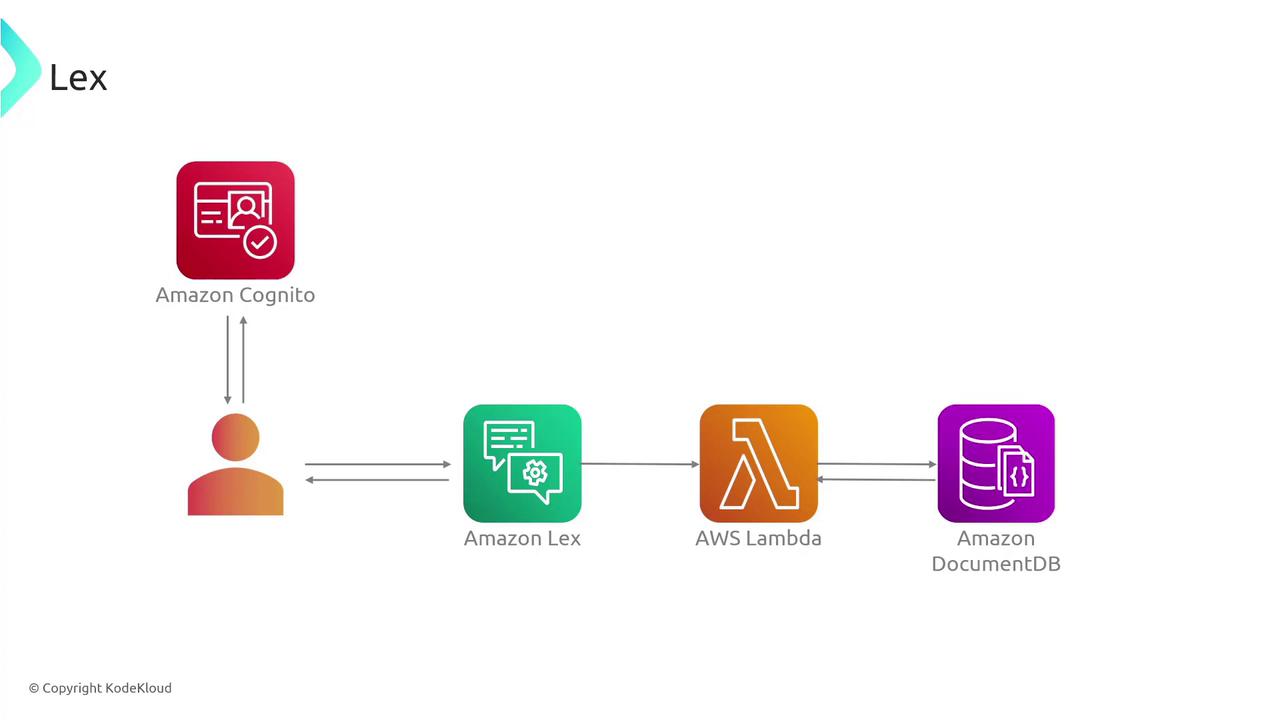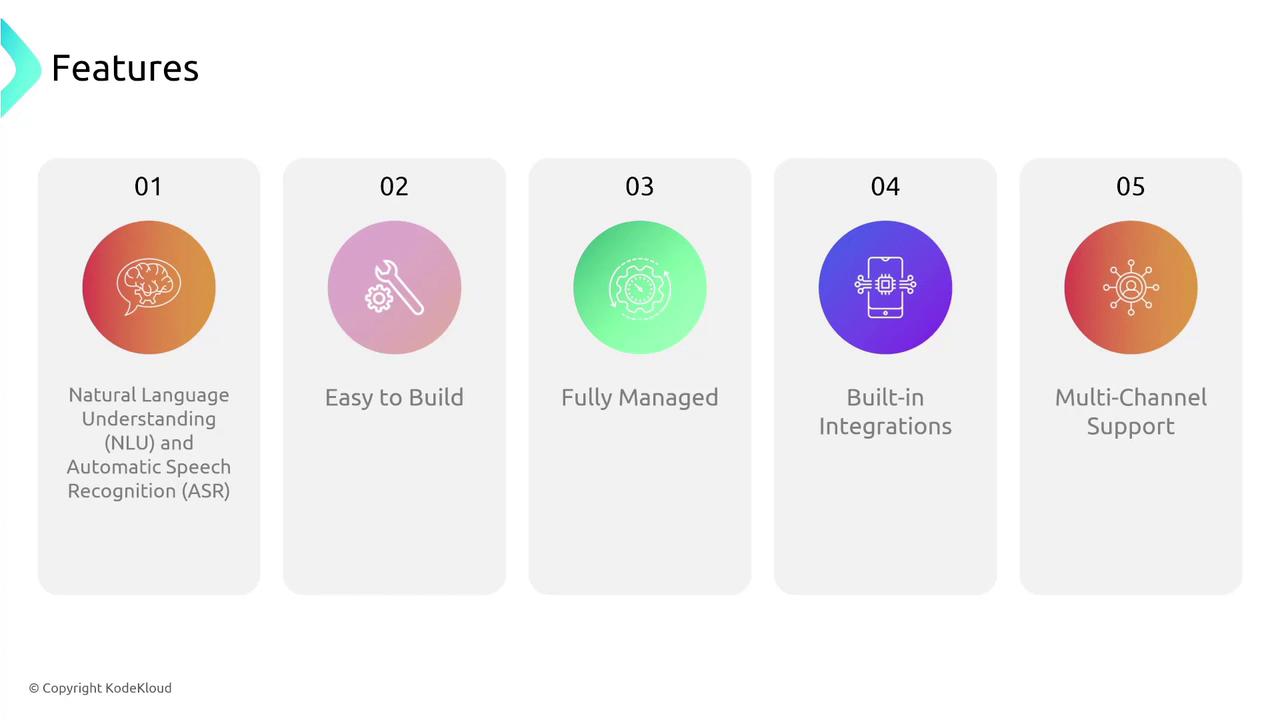AWS Solutions Architect Associate Certification
Services Data and ML
Lex
Welcome, future architects! In this lesson, Michael Forrester introduces AWS Lex—our premier chatbot service that leverages the power of machine learning for building intuitive conversational applications.
Imagine needing to create a hotel booking system where users interact with a chatbot to answer questions and provide reservation details interactively. For instance, a user might say, "I want to book a hotel in London," and the chatbot will intelligently follow up with questions such as, "When will you be coming and how long will your stay be?" AWS Lex manages these nuanced user interactions seamlessly.
Key Benefits of AWS Lex
- Fully managed service that scales automatically with demand.
- Seamless integration with AWS services such as Lambda, Cognito, and DocumentDB.
- Simplifies chatbot creation with built-in Automatic Speech Recognition (ASR) and Natural Language Understanding (NLU).
How It Works
AWS Lex is a highly abstracted machine learning service that allows developers to design and deploy chatbot-style workflows with minimal overhead. It integrates natively with various AWS services, enabling you to create dynamic and scalable applications with ease.

In the diagram above, notice the inclusion of Amazon Cognito, which handles application authentication rather than AWS infrastructure security. For example, when a user logs into your website via Cognito, they gain access to Lex for interactive engagement. When Lex processes a user's request for hotel booking information, it can trigger an AWS Lambda function. This function then interacts with Amazon DocumentDB (Amazon's MongoDB-compatible database) to verify booking details or fetch available dates. The result is a responsive chatbot that guides the user with either an existing booking status or available booking dates.
Core Features of AWS Lex
AWS Lex brings two major features that make it a powerful tool for developing conversational interfaces:
- Automatic Speech Recognition (ASR): Converts spoken language into text, enabling voice-driven interactions.
- Natural Language Understanding (NLU): Interprets user input to determine intent, ensuring that conversations flow naturally.
These core features empower you to create highly engaging applications that offer lifelike conversational experiences. Lex’s design simplicity and tight integration with other AWS services like Lambda, Cognito, and Polly amplify its functionality, allowing for rapid development across multiple platforms including mobile devices, chat apps, and IoT devices.

Integration and Deployment
AWS Lex’s flexibility facilitates the support of multiple messaging platforms, ensuring a consistent user experience—from edge devices to core backend systems. Its ease of deployment across platforms means that you can rapidly iterate and enhance your chatbot's functionality as your user base grows.
Real-World Use Case
Consider a scenario where a hospitality business uses Lex to automate hotel bookings. Integrated with Lambda and DocumentDB, the chatbot can quickly verify room availability, process reservations, and provide recommendations—all while delivering a seamless conversational experience.
I'm Michael Forrester. If you have any questions, feel free to connect on Slack. Otherwise, I'll see you in the next lesson.
Watch Video
Watch video content